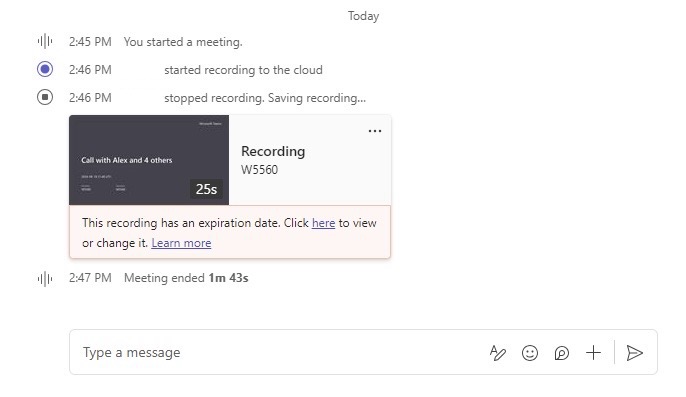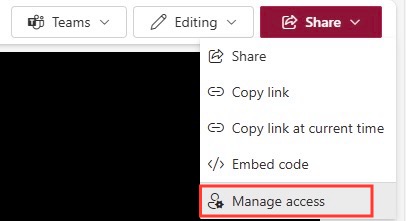In today’s fast-paced work environments, the ability to promptly and efficiently find recorded Teams meetings is crucial. I depend on these recordings to review details, clarify points that were discussed, and share the information with team members who couldn’t attend. Being able to quickly access these recordings saves precious time and often scribes the determining factor between staying on task or falling behind on my projects.
Key Takeaways
- Recorded meetings in Microsoft Teams can be accessed via Teams calendar by clicking the “Details” tab for scheduled meetings, or in the “Chat” or “Calendar” panel for past meetings to view the meeting chat or details.
- For channel meetings, recordings are found within the specific team and channel, under the ‘Files’ tab and then the ‘Recordings’ folder in SharePoint, accessible to anyone in the channel.
- Teams meeting recordings are now saved to OneDrive for Business (or the Microsoft Teams site for channel meetings), not Microsoft Stream, and the meeting organizer will receive an email notification when the recording is ready.
Navigating Microsoft Teams How-To Guide Essentials
Navigating Microsoft Teams’s interface to locate documents or recordings may initially seem daunting. However, with an understanding of the essential how-to guide, which I’m about to offer, I can maneuver through the platform with ease. The key is knowing where to look and what steps to follow. Whether it involves accessing the calendar, traversing through chat history, or digging into channel files, the process announced by Microsoft is intuitive once you’ve done it a few times. Keep reading, and I’ll guide you through these steps so that you’re never left scrambling for a meeting recording again.
Table of Contents
Starting Your Search for Recorded Meetings
Recognizing Where Microsoft Teams Stores Your Recordings
It’s pivotal for me to recognize where Microsoft Teams stores my recordings to avoid confusion and delays. As per the latest update by Microsoft, Teams meeting recordings are no longer stored in Microsoft Stream. Instead, these recordings are automatically saved in SharePoint for channel meetings, and in OneDrive for non-channel and personal meetings. This change means that the recordings are now treated like other documents, enabling me to share and manage them with familiar tools and procedures I’m accustomed to with OneDrive and SharePoint.
Direct Access From Teams: Calendar and Chat Methods
If I’m looking to access a recorded meeting directly from Microsoft Teams, I always remind myself there are two straightforward methods: the Calendar and the Chat panels. For meetings I have scheduled, I find them neatly listed in my Teams calendar. By simply clicking on the Details tab of a particular meeting entry, I can swiftly play the recording. For ad-hoc or impromptu meetings, I navigate to the Chat panel, where a recording link is conveniently placed within the transcript of the meeting chat. These methods ensure that I am never more than a few clicks away from the resources I need.
Digging Deeper into the Microsoft Teams Interface
Locating Recordings in Channel Meetings
When I participate in channel meetings within Microsoft Teams, finding the recordings is straightforward. For these open-door sessions that are accessible by anyone in the channel, I know the recordings are neatly stored in the Channel’s Files section. Here’s how I go about it: I launch Microsoft Teams, navigate to the Team and Channel where the meeting took place, and click on the Files tab.
A Recordings folder is always automatically created and is just a click away. Inside, I can easily locate the video file among the listed recordings. It’s sleek, organized, and accessible to all channel members, which is incredibly efficient for collaborative reviews.
Finding Recordings for Non-channel & Personal Meetings
For non-channel and personal meetings, which are a bit more private in nature, I find that recordings are saved in a different location. Microsoft Teams ensures the privacy of these meetings by storing the recordings in the meeting organizer’s personal OneDrive, under the Recordings folder. Once the recording is ready, I receive a notification, and I can access it by navigating to my OneDrive directory on my computer, and simply clicking on the “Recordings” folder. 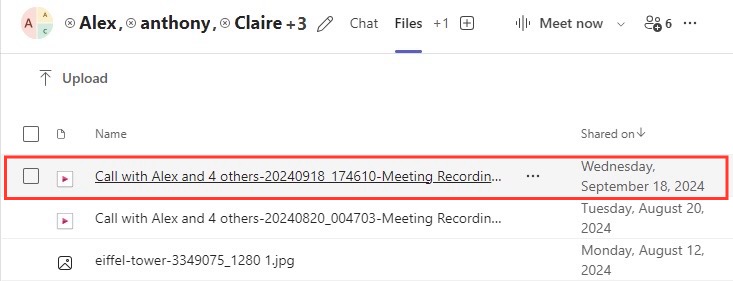
Utilizing OneDrive and SharePoint for Recording Storage
Understanding the Shift from Stream to OneDrive/SharePoint
Understanding the shift from Microsoft Stream to OneDrive and SharePoint for storing meeting recordings was vital for me. The change was made to streamline the storage process and improve sharing capabilities. 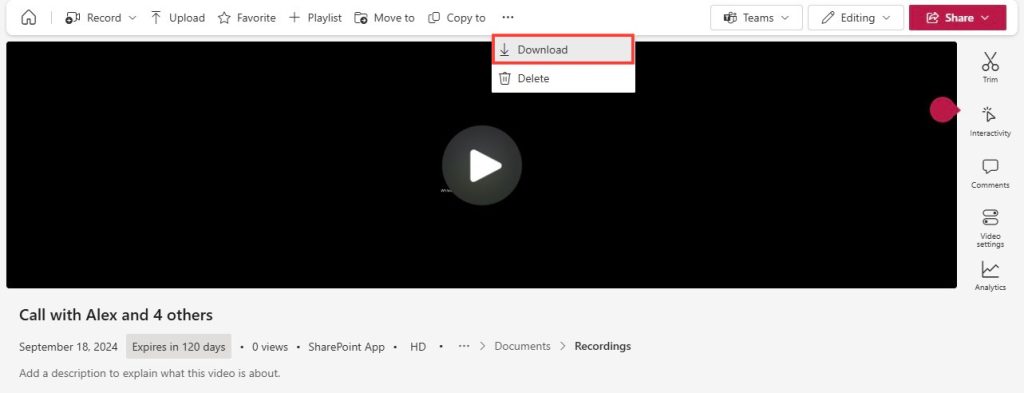
Accessing Your Meeting Recordings in Cloud Storage
Accessing my meeting recordings in cloud storage, specifically from OneDrive and SharePoint, has become an integral part of my workflow in the post-meeting process. Once recordings are saved to OneDrive or SharePoint, I can simply sign into my account from any device with internet access to retrieve them. I locate the “Recordings” folder which distinctly conserves all the video files—allowing me to share with colleagues, or even sync for offline access. Additionally, I take advantage of powerful Microsoft 365 integrations, like automated transcripts and advanced search, to maximize the usefulness of these recordings.
Troubleshooting Common Issues with Meeting Recordings
Backup Solutions for Unsuccessful Recording Uploads
In instances where meeting recordings do not upload successfully, I’ve learned to be prepared with backup solutions. Microsoft Teams allows for a temporary download directly from the meeting chat, which is available for 21 days. If I encounter an upload error, perhaps due to a full storage location or restrictive permissions, this short-term option is a lifesaver. It’s wise for me to download and secure the recording immediately, ensuring no critical information is lost. I also recommend routinely checking storage capacities and permission settings to avoid such issues from the outset.
Managing Permissions and Sharing for Secure Access
When I manage permissions and sharing for recorded meetings, maintaining security and accessibility balance is crucial. In OneDrive and SharePoint, I can set specific permissions for each recording, determining who can view or edit the file. 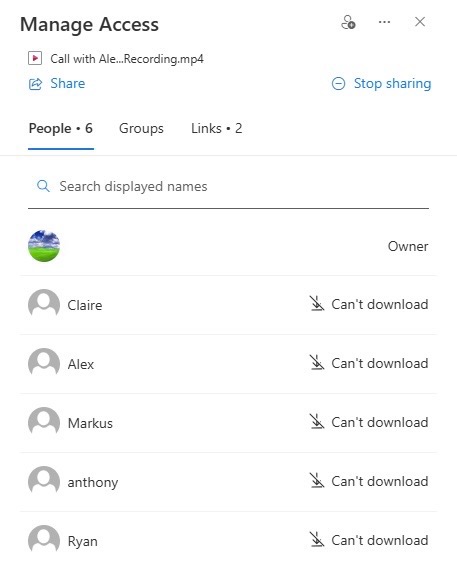
Adapting to New Developments in Microsoft Teams
Updates on Recording Features from Recent Microsoft Events
During recent Microsoft events, there have been some noteworthy updates on recording features that have come to my attention. Innovation in this space is constant, aimed at enhancing user experience and compliance. For example, new options for video on demand (VOD) publishing and the potential for automatic transcription make recordings more versatile than ever. The continual integration of Microsoft’s AI technologies has led to improved searchability within recordings, thanks to better indexing, and has simplified the way I interact with recorded data. I keep myself tuned to these updates, ensuring I leverage the latest enhancements for an optimized recording and sharing experience.
Preparing for Automatic Deletion After 120 Days
Being aware that Microsoft Teams meeting recordings have an expiration time is crucial to managing my content. Standard policy dictates recordings auto-delete after 120 days to help with storage management. As crucial as it is to know where to find my recordings, it’s equally important to know how long they’ll last. I make it a practice to mark the auto-deletion date for each recording, or if necessary, alter the expiration settings directly in Microsoft Stream. If a recording is indispensable for long-term reference, I download a copy, as downloaded recordings are not subject to the same time constraints. Staying proactive with these practices ensures that important information doesn’t slip through the cracks due to automatic deletion policies.
FAQs
How can I quickly access a meeting recording from a Teams channel?
To quickly access a meeting recording from a Teams channel, I simply navigate to the specific channel where the meeting took place, go to the Posts tab, and find the recording in the conversation thread. Alternatively, I can select the Files tab, go to the “Recordings” folder, and click on the desired recording to play it. It’s efficient and straightforward.
What happens if Microsoft Teams fails to upload a meeting recording?
If Microsoft Teams fails to upload a meeting recording, it generally provides me with an option to download the recording manually. The recording is available temporarily in the meeting chat for me to download within 21 days. I should ensure to download it within this time frame to avoid losing the recording permanently.
Is there a way to prevent automatic deletion of Teams meeting recordings?
Yes, to prevent automatic deletion of Teams meeting recordings, I can adjust the expiration settings in Microsoft Stream if I’m the meeting organizer or have the necessary permissions. Alternatively, I can download the recording and store it in my own storage solution to keep it indefinitely. It’s essential to be proactive with these measures to ensure recordings are preserved.
John Michaloudis is a former accountant and finance analyst at General Electric, a Microsoft MVP since 2020, an Amazon #1 bestselling author of 4 Microsoft Excel books and teacher of Microsoft Excel & Office over at his flagship MyExcelOnline Academy Online Course.

